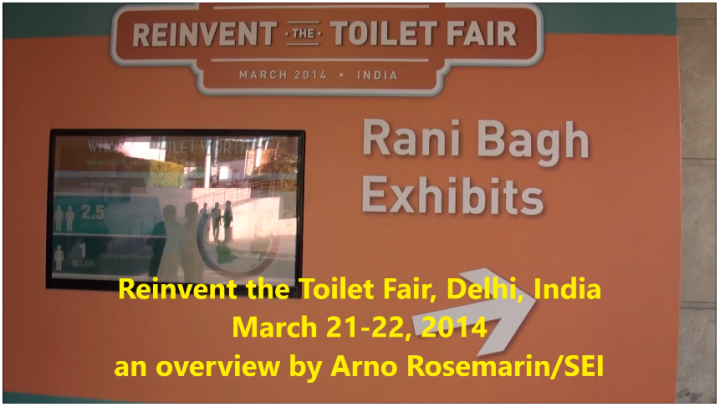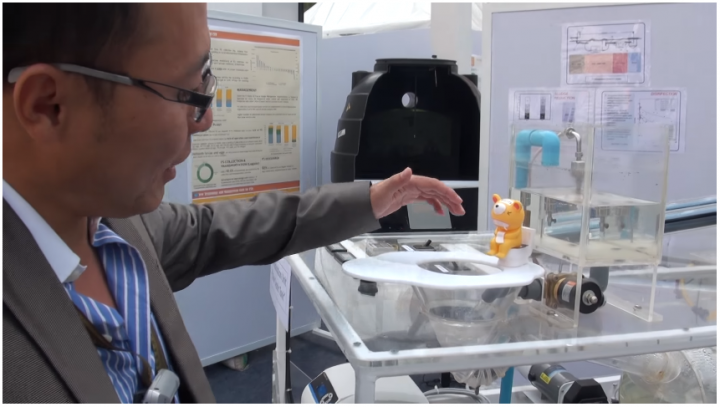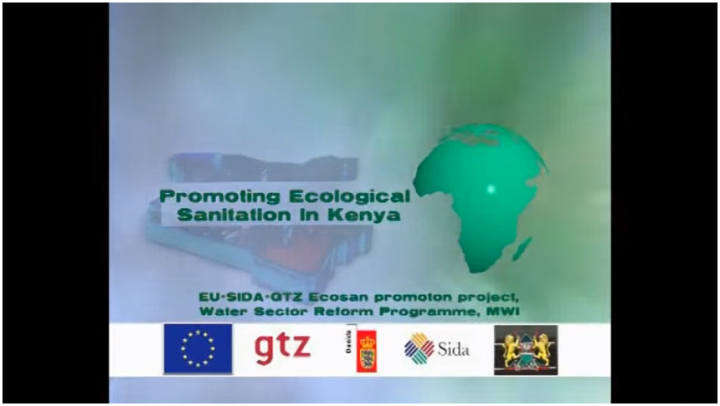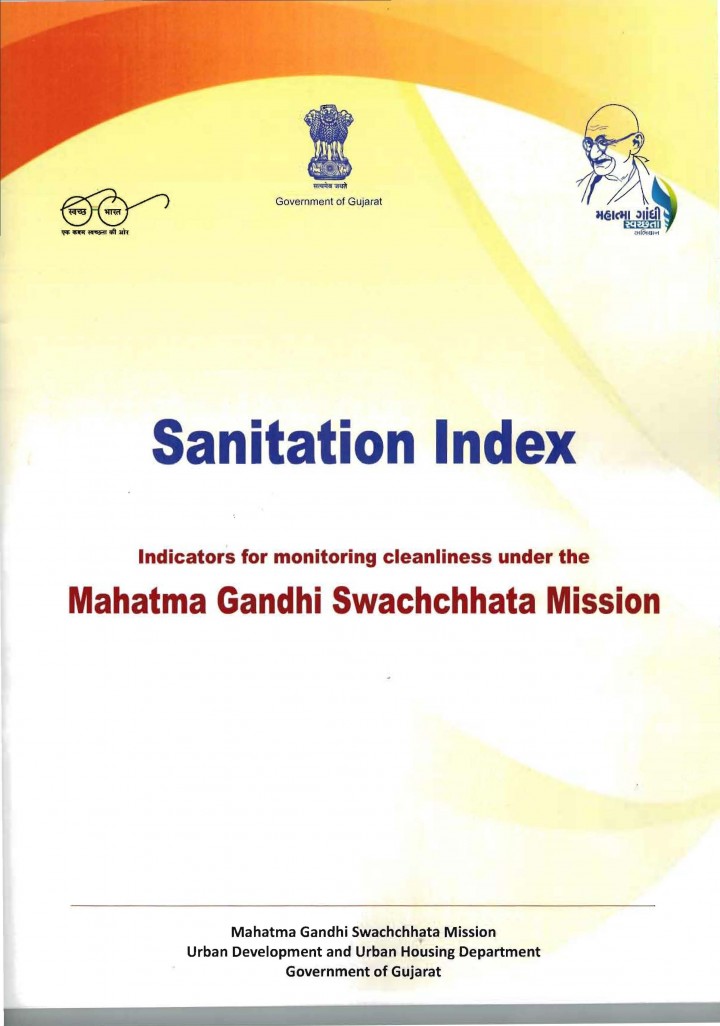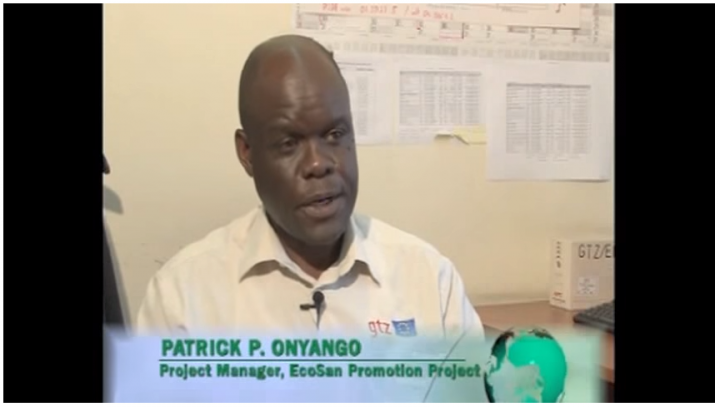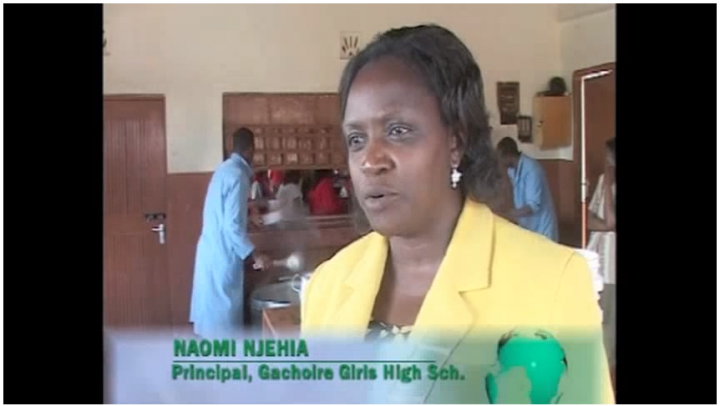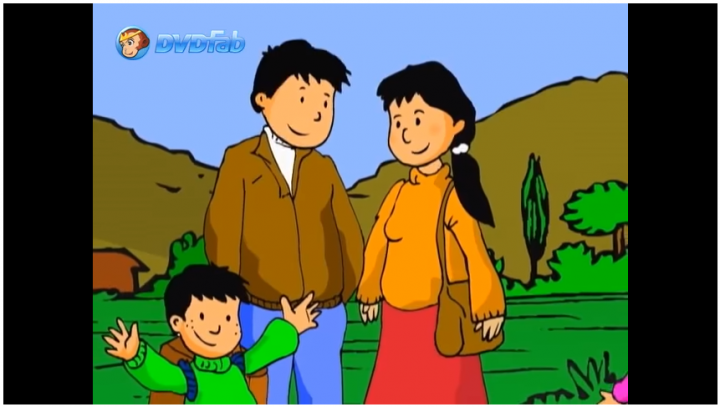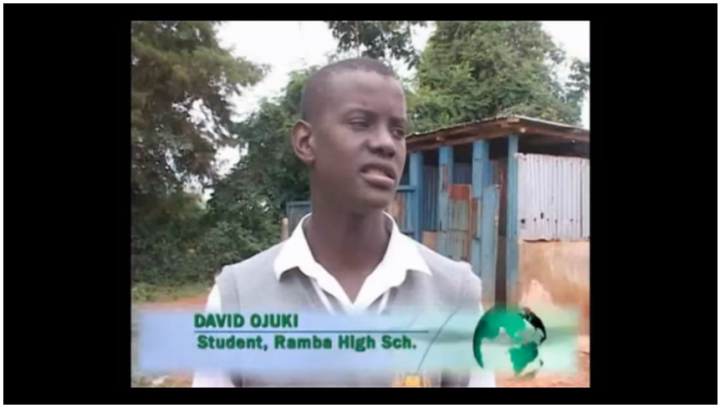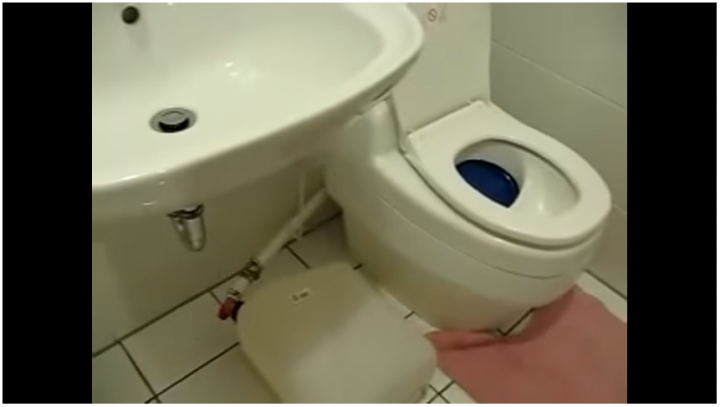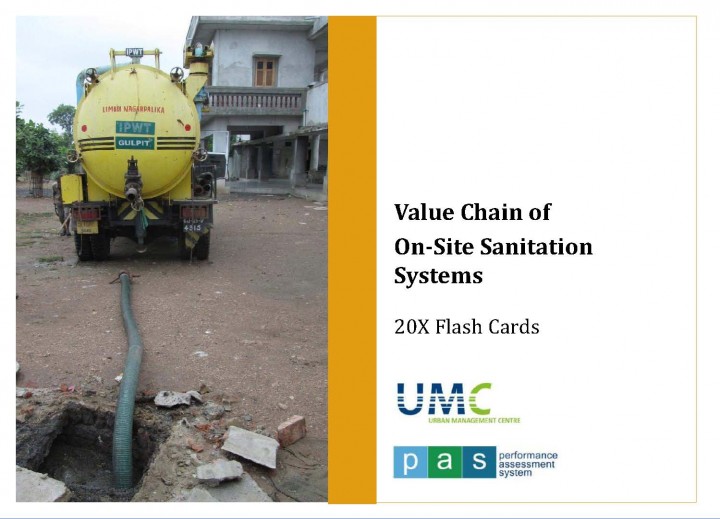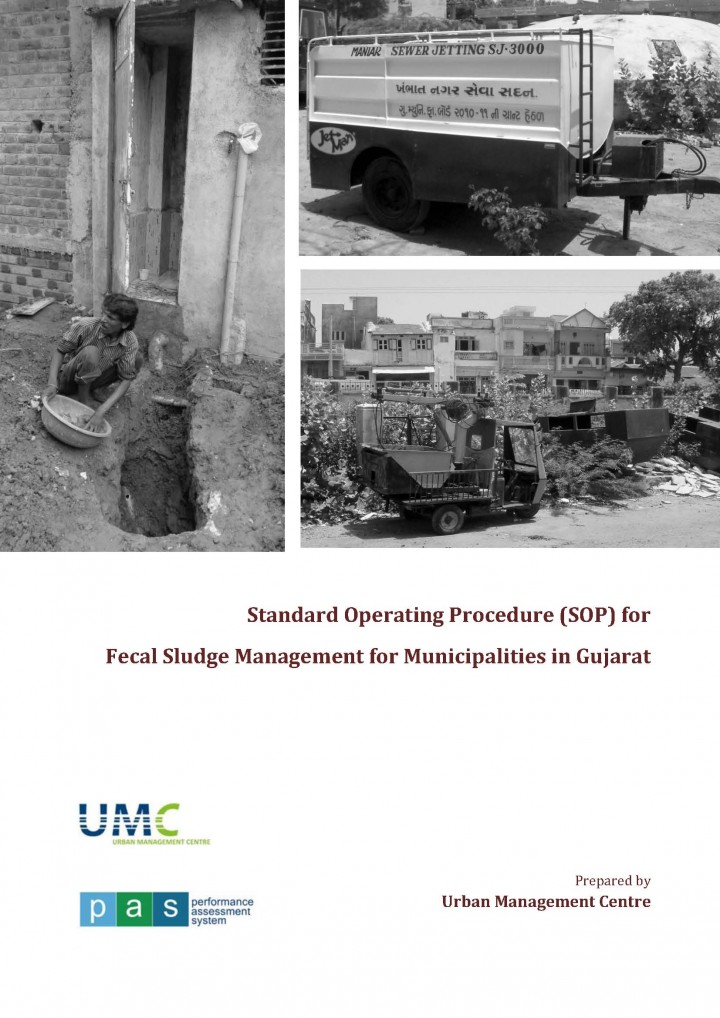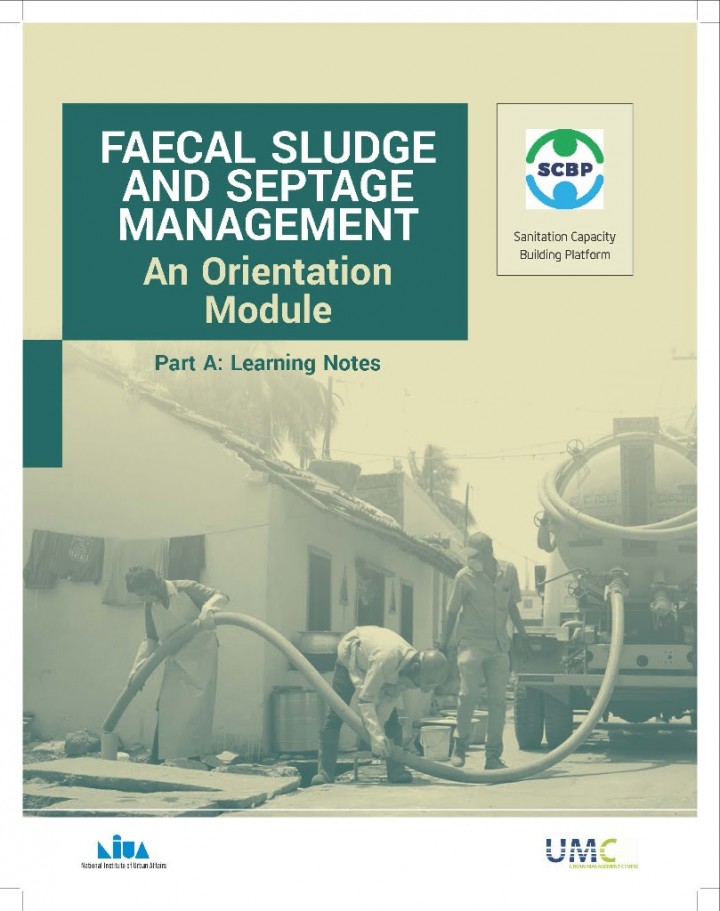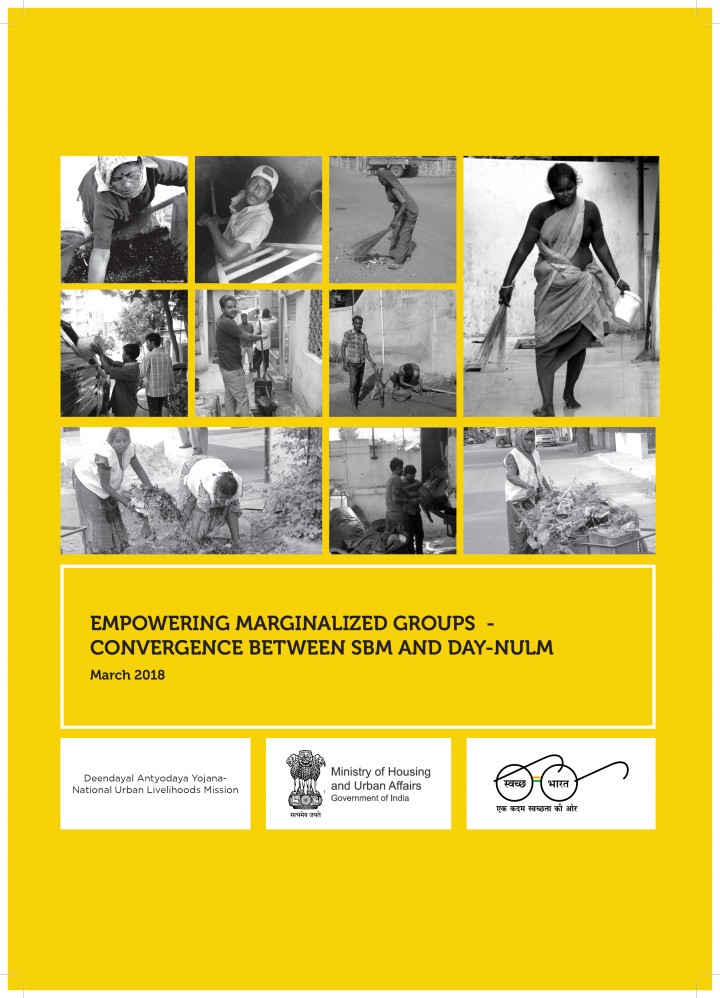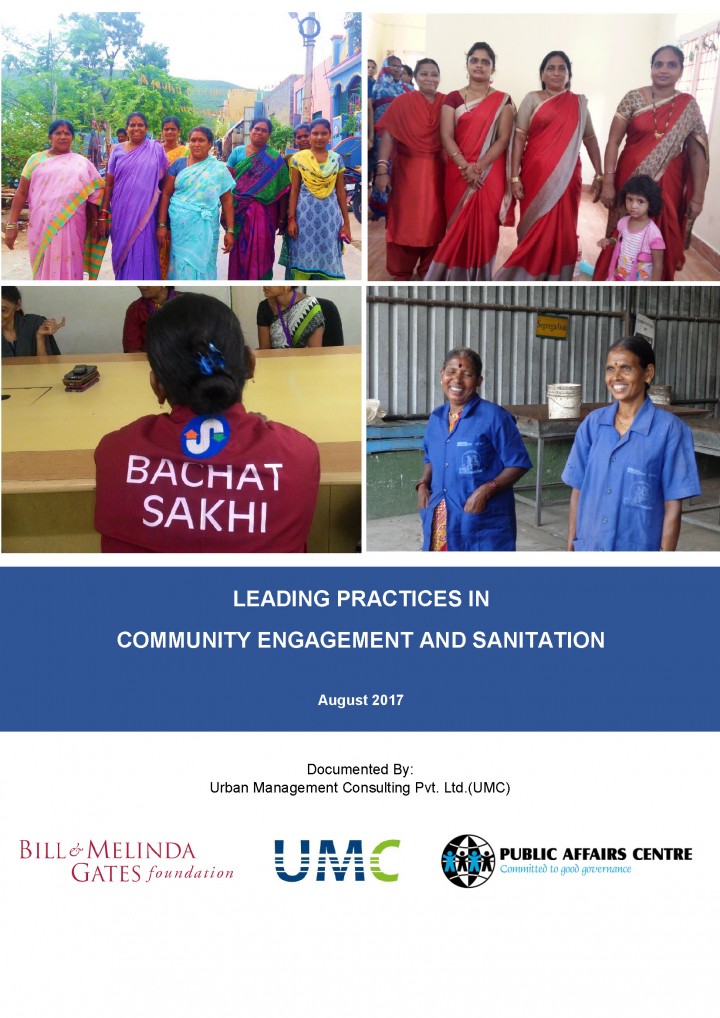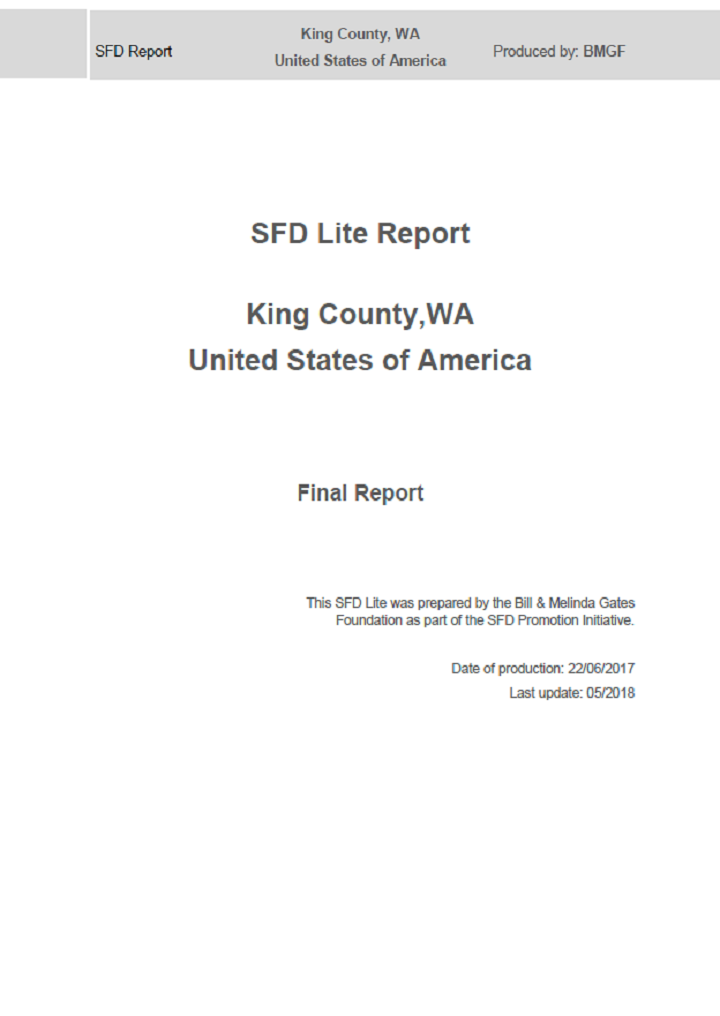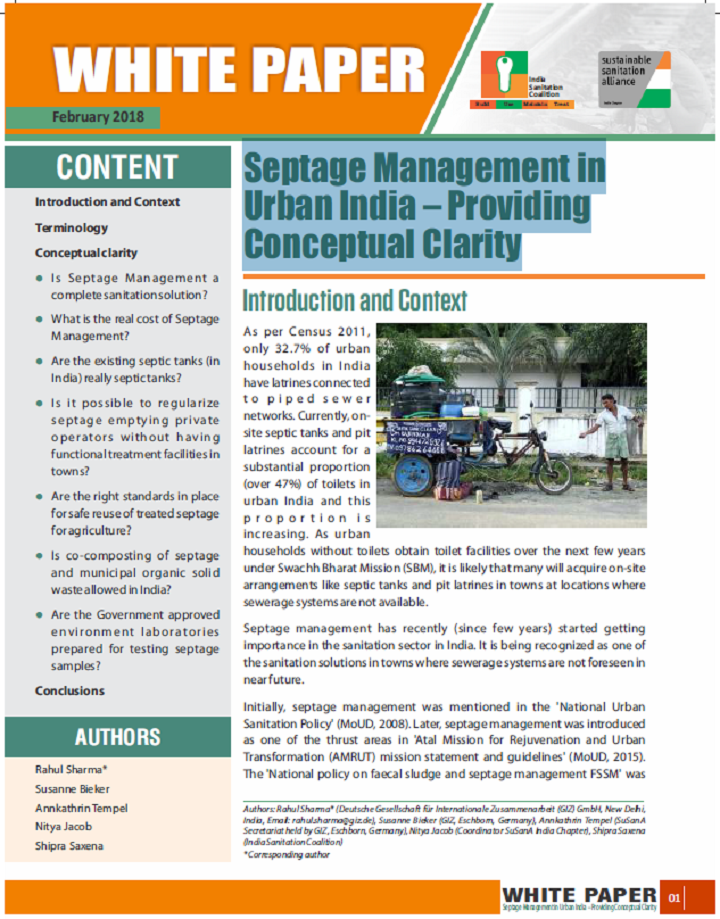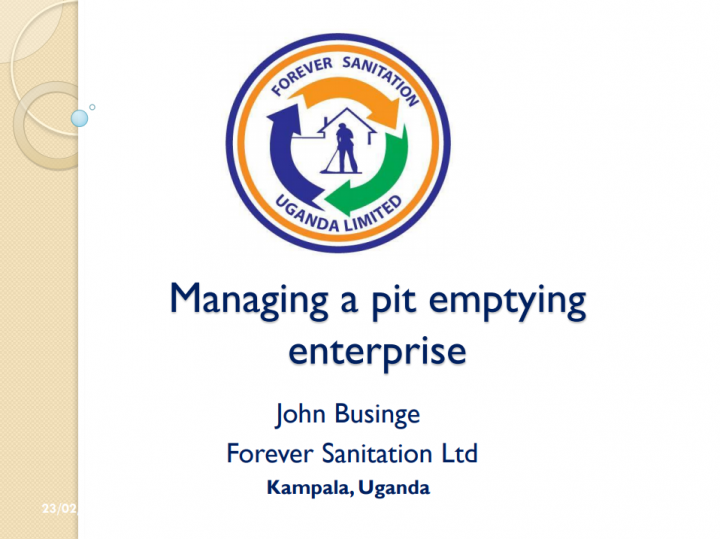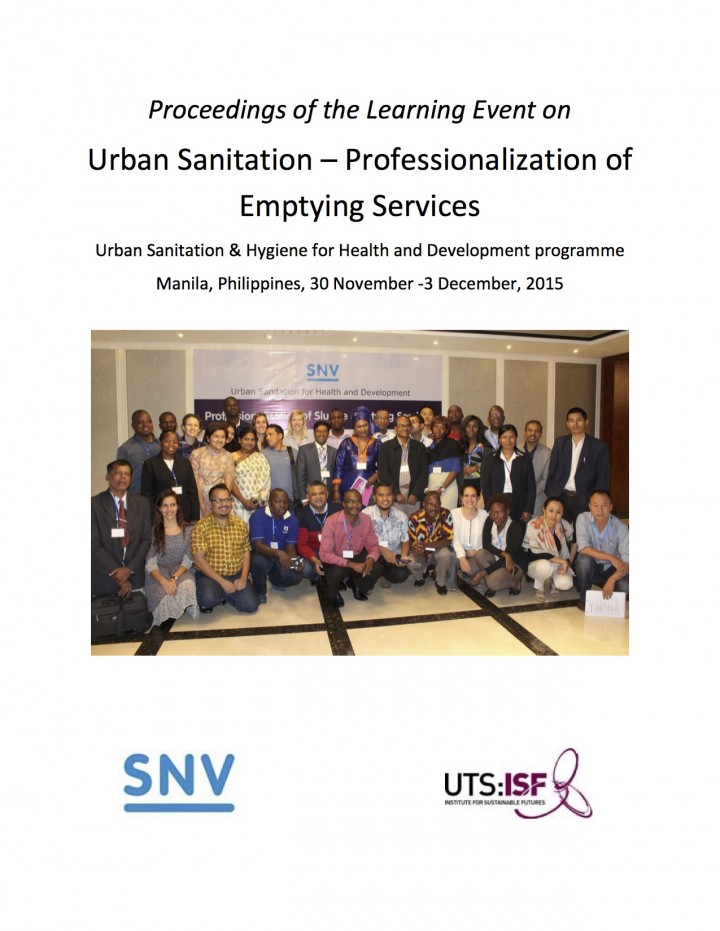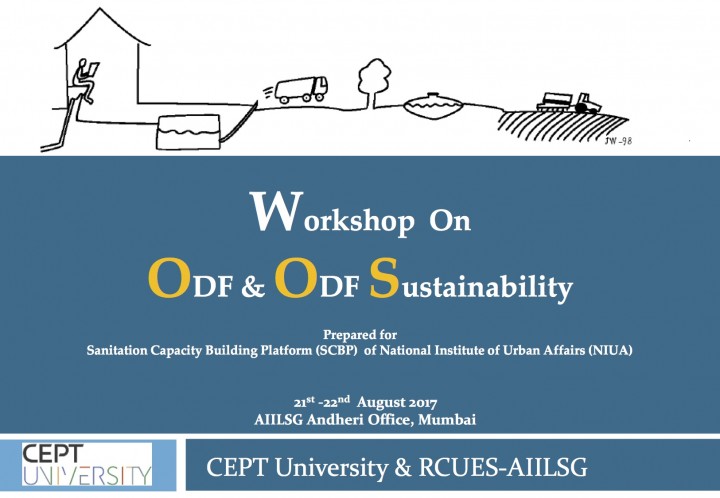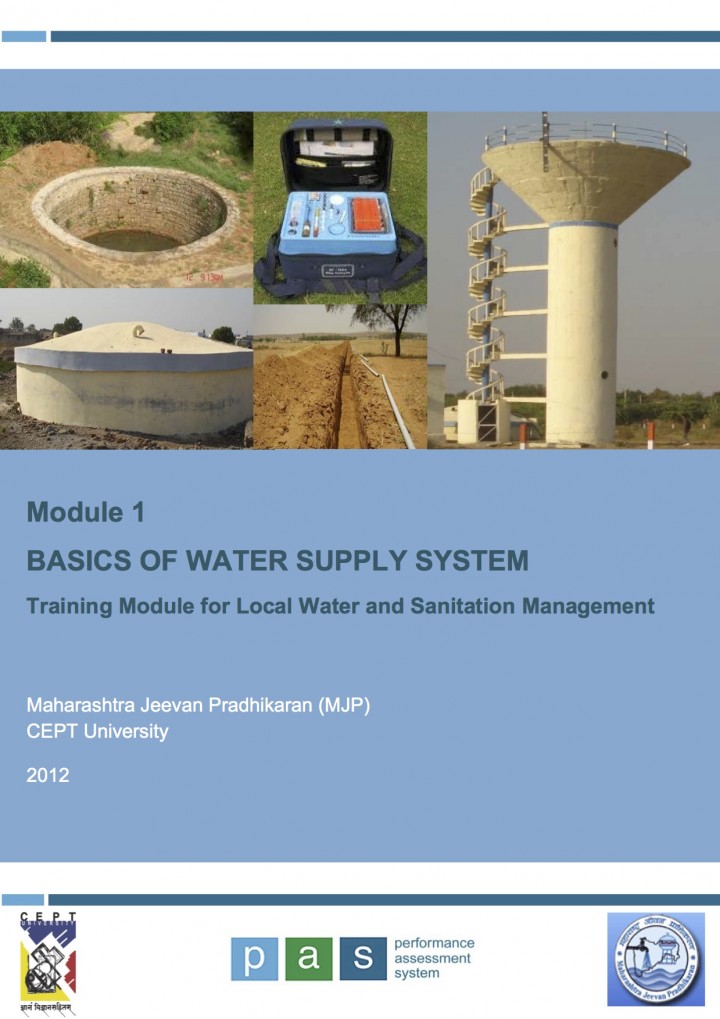SuSanA (2014) Reinvent the Toilet Fair in Delhi, India
This library entry shows a tour video of the exhibits at the Reinvent the Toilet Fair in Delhi, India (21 to 22 March 2014). Other videos within the event can also be watched through the links below.
SuSanA (2014) Thammarat Koottatep: Solar septic tank and hydrocyclone toilet (AIT, Thailand), Part 2
Thammarat, who spoke about the solar septic tank and hydrocyclone toilet, was interviewed by Elisabeth von Muench on 21 March 2014 at Taj Palace Hotel in Delhi, India. Filmed by Arno Rosemarin (SEI) during "Reinvent the Toilet Fair".
SuSanA (2010) Promoting Ecological Sanitation in Kenya
This project was financed by EU, SIDA and GTZ (BMZ). It had been implemented by the EcoSan Promotion Project of the Deutsche Gesellschaft für Technische Zusammenarbeit (GTZ) in 2007 to 2010. More than 800 toilets, so called Urine Diversion Dehydration Toilets (UDDTs) were constructed with CBOs and beneficiaries at households and at schools in rural and peri-urban areas. A different technology called pour-flush toilets in […]
Government of Gujarat (2014) Sanitation Index: Indicator for monitoring cleanliness under Mahatma Gandhi Swachhta Mission
The document provides a framework to monitor cleanliness in government owned or occupied buildings and derive Sanitation Index for building ratings. This framework is aligned with the Swachh Bharat Mission (Urban) guidelines and Ministry of Urban Development’s Service Level Benchmarking (SLB) framework and sanitation rating under the National Urban Sanitation Policy (NUSP). The document would assist in: 1. Providing a quantitative measurement to gauge the […]
SuSanA (2010) EcoSan promotion project examples at Naivasha Bus Park, Kenya
This video shows the EcoSan public sanitation project at the bus park of Naivasha in central Kenya. The sanitation system uses flush toilets connected to a biogas plant. The biogas is used at an adjacent cafe for cooking.
SuSanA (2010) EcoSan promotion project examples in Kiambu, Kenya
This video shows the use of biogas at the ecosan sanitation project at Gachoire Secondary girls school close to Kiambu/Central Kenya.
SuSanA (2014) Vidéo educativo - Cuentos de la Mariquita
An educational video about tales of the Mariquita.
SuSanA (2010) School sanitation - a common challenge in Kenya
School sanitation - a common challenge in Kenya. The video shows the state of toilets and their negative influence on the hygiene situation and learning conditions in schools. The installation of ecosan systems is generating the confidence amongst the school staff to solve their sanitation problems and to gain from the benefits of biogas use, fertilizer and the irrigation water thereby saving on costs and […]
SuSanA (2010) Simple waterless sanitation at private residence in Germany
Leading by example: A dry toilet at a private residence in Germany which doesn't need any flush water was installed. It is odour-free, thanks to the fact that dry faeces don't smell. It is produced by Separett in Sweden.
UMC (2018) Value Chain of On-Site Sanitation Systems - Flash cards
The flash cards illustrate the existing and available technology options and processes across the entire value chain of on-site sanitation in Gujarat (for pour-flush user interface). The flash cards will be used as visual aids in the field to identify and evaluate existing systems and processes. These cards can also be used as tools to foster discussion with ULB officers on septage management in cities. The […]
UMC (2015) Standard Operating Procedures for Fecal Sludge Management for Municipalities in Gujarat
This Standard Operating Procedure (SOP) is a step-by-step guide for ULBs to institute a framework for on-site sanitation system management. This SOP conforms to the advisory note on septage management released by MoUD and draws from UMC’s experience of working with ULBs in Gujarat. It provides a set of written instructions on septic tank construction, cleaning and maintenance and disposal of sludge in a concise format. […]
NIUA and UMC (2018) Faecal Sludge and Septage Management: An Orientation Module
The Handbook is an initiative of Sanitation Capacity Building Platform (SCBP) to build capacities in Feacal Sludge and Septage Management (FSSM) for officials of urban local bodies (ULB), para state technical agencies, administrators and professionals from the private sector and Non-governmental Organizations. It is meant to be freely used by any can organization (public or private), national and state level training institutes, AMRUT and SBM […]
UMC Technical Support Unit-NULM, Ministry of Housing and Urban Affairs (MoHUA) (2018) Empowering Marginalized Groups - Convergence Between SBM and DAY-NULM
Empowering Marginalized Groups- Convergence Between SBM and DAY-NULM is a guideline on convergence between Swachh Bharat Mission (SBM) and Deendayal Antyodaya Yojana -National Urban Livelihood Mission (DAY-NULM). The guidelines are a ready reckoner for the government functionaries at the national, state and Urban Local Body (ULB) level to bring recognition to sanitation as a major livelihood sector for the urban poor candidates. The convergence […]
Urban Management Centre (2017) Leading Practices in Community Engagement and Sanitation
Community engagement and establishing women-led self help groups in cities across India is at the core of the National Urban Livelihood Mission (NULM). All other components of NULM, namely, self employment, skill training and entrepreneurship development have their roots in social mobilization. In contrast to the rural livelihood mission, where there are several successful community engagement platforms, due to the complexity and dynamic […]
Mangharam, A. (2017) SFD Lite Report - King County, WA, USA
King County is located in the state of Washington in the Pacific Northwest region of the USA. It has a population of 2.1 million people and is the most populous county in the state. Most of King County is sewered with separate, partial and combined sewage systems; there are also 85,000 septic tanks in the county, in Seattle and on Vashon Island. Note: All calculations in […]
Sharma, R., Bieker, S., Tempel, A., Jacob, N., Saxena, S. (2018) Septage Management in Urban India – Providing Conceptual Clarity White Paper
Content: - Introduction and Context - Terminology - Conceptual clarity - Conclusions
Businge, J. (2017) Managing a pit emptying enterprise
Overview of managing a pit emptying enterprise.
Murta, J. (2015) Proceedings of the Learning Event on Urban Sanitation – Professionalization of Emptying Services Urban Sanitation & Hygiene for Health and Development Programme
This report documents the activities from the Learning Event held by SNV Netherlands Development Organisation in Manila, Philippines, from 30 November to 3 December 2015, as part of the Knowledge and Learning component of its Urban Sanitation & Hygiene for Health and Development programme. The event was attended by 39 participants from eight countries, and focused on the ‘professionalization of emptying services’. Learning Event held by SNV Netherlands Development Organization
CEPT University & RCUES, AIILSG (2017) ODF and ODF Sustainability Workshop
Sanitation has been on the forefront of development agenda in India. The Government of India's Swachh Bharat Mission aims to make the whole country Open Defecation Free by 2019. How cities become ODF and what can other cities learn from ODF cities? This was the aim in organising a two day workshop for city officials from Rajasthan. The workshop also included a visit to an […]
Jeevan Pradhikaran, M. (2012) Training modules for WSS capacity building of community groups in rural and small urban areas
This training course series was formulated for capacity building of community groups in rural and small urban areas for operation and maintenance of water supply and sanitation systems in their village/town. There are 3 Modules- "Basics of Water Supply System" provides insights on basics component of water supply system, installation and distribution of water supply systems, estimation and measurement of components of water supply system […]
